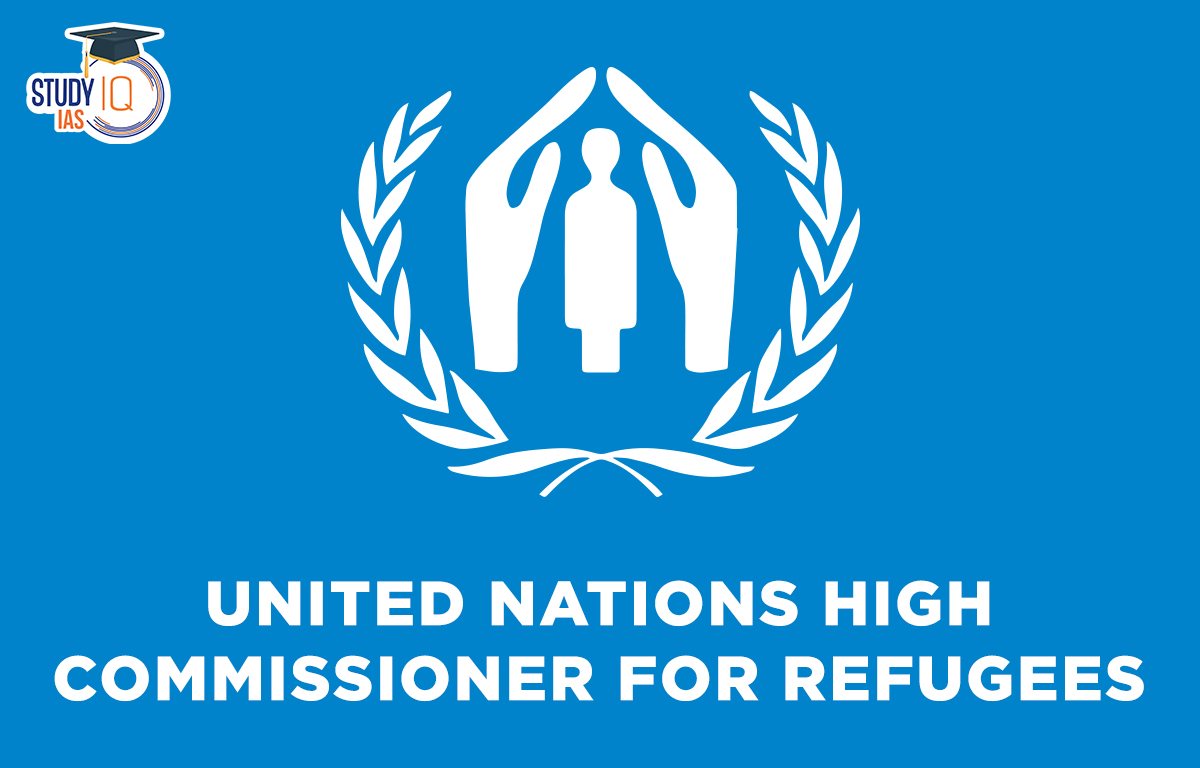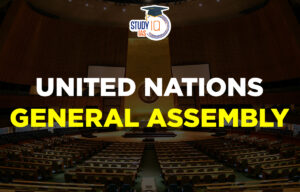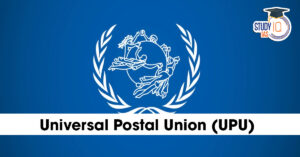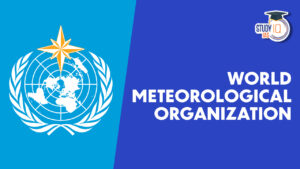Table of Contents
Context: The UNHCR has suspended the repatriation of Sri Lankan Tamil refugees after several returnees were arrested in Sri Lanka on charges of violating immigration laws.
United Nations High Commissioner for Refugees (UNHCR)
- Role: Protects refugees worldwide, ensures their safety, and facilitates their voluntary return or resettlement.
- History:
- Established in 1950 by the UN General Assembly after World War II.
- Created to assist millions displaced by the war.
- Nature: A global humanitarian body committed to saving lives, protecting rights, and supporting people forced to flee due to conflict or persecution.
- Awards & Recognition:
- Won the Nobel Peace Prize in 1954 and 1981.
- Introduced the Nansen Refugee Award (1954) to honour exceptional service to refugees, displaced, or stateless persons.
- Headquarters: Geneva, Switzerland.
| Rohingya Refugees |
|
History of UNHCR
In order to deal with the post-World War II refugee situation, UNHCR was established in 1950. The 1951 Refugee Convention set the parameters and rules for the agency’s operations, which at first concentrated on Europeans uprooted by the conflict. The scope of UNHCR’s activities began to expand in the late 1950s as a result of the displacement brought on by other conflicts, including the Hungarian Uprising and the decolonisation of Africa and Asia.
The UNHCR worked globally, with the majority of its activities taking place in developing nations, under the 1967 Protocol to the Refugee Convention, which broadened the geographic and temporal scope of refugee aid. The organisation had helped more than 50 million migrants by its 65th anniversary in 2015. By June 2020, the UNHCR’s mission covered more than 20 million refugees.
Also Read: International Court of Justice
United Nations Refugee Convention 1951
The 1951 Convention Relating to the Status of Refugees, the cornerstone of international refugee law, is guarded by the UNHCR, which has been designated as its defender. The legal framework for our activity is provided by the 1951 Refugee Convention and its 1967 Protocol. 149 States have ratified one or both of them, defining the term “refugee” and establishing the rights of those who have fled their countries as well as the obligation of governments to safeguard them.
The foundational principle of international law is non-refoulment, which says that a refugee shall not be returned to a country where they face serious threats to their life or freedom. The UNHCR serves as the “guardian” of the 1951 Convention and its 1967 Protocol. The legislation mandates that States cooperate with us to ensure the protection and observance of refugee rights. The 1951 Convention and its 1967 Protocol are the only international legal instruments that specifically address the most important aspects of a refugee’s existence.
Structure of the United Nations High Commissioner for Refugees
The UN Refugee Agency is governed by the UN General Assembly and the Economic and Social Council (ECOSOC). The organisation’s biennial program and funding are approved by the UNHCR Executive Committee. The High Commissioner annually updates ECOSOC and the General Assembly on the work of the UNHCR.
The UNHCR is under the High Commissioner’s direction and authority. He or she oversees UNHCR’s operations with the assistance of a Deputy High Commissioner and Assistant High Commissioners for Protection and Operations. These statements are made by the High Commissioner, who is chosen by the UN General Assembly.
Functions of UNHCR
To safeguard refugees and address refugee problems globally, the United Nations High Commissioner for Refugees is tasked with organizing and leading global efforts. The UNHCR Statute of 1950 establishes the UN refugee agency’s mission.
United Nations High Commissioner for Refugees: Funding and Budget
The United Nations High Commissioner for Refugees (UNHCR) oversees the funding for refugee assistance that it gets from public and private sources. They are initially given out to private organisations that it deems are best equipped to offer this assistance. If required, it may also distribute a portion of the funds to government organisations.
Only a small part of administrative overhead expenses (about 3%) is covered by the UN’s annual budget. The state voluntarily contributes to the programmers’ funding. UNHCR may not submit a funding request to states without the General Assembly’s prior approval.
Achievements of United Nations High Commissioner for Refugees
UNHCR has provided security to refugees all over the world by upholding their right to asylum and working to prevent any forced returns to the nations they have fled.
Since it was founded more than 50 years ago, the UNHCR has helped millions of individuals resume their lives. They include refugees, returnees, stateless people, and asylum applicants. Here are some of UNHCR’s greatest accomplishments:
Medical Refugees
In 2021, eight refugee medical experts will start working as United Nations Volunteers (UNVs) in hospitals and clinics as a result of effective coordination between UNHCR and the Ministry of Health.
COVID-19 and Immunisation
After including refugees in the UNHCR national response since the start of the pandemic, the nations kindly included them in the vaccination program starting in 2021.
Access to protection programs and registration
Following a shift to a hybrid strategy for services and modalities, UNHCR has been able to offer both in-person and online services to refugees throughout 2021. More than 400,000 refugees and asylum applicants had their documents processed and renewed by UNHCR.
Monetary Measures
UNHCR provided over 350,000 individuals with over USD 100 million in 2021. To increase financial inclusion among refugee groups, over 6,000 families receiving cash assistance moved from virtual accounts to mobile wallets this year.
Financial Stability and Livelihoods
At the Winter #WithRefugees Bazaar in IKEA, where over 50 refugees and organisations that support refugees sold their wares, the UNHCR sponsored a pop-up shop for Mother’s Day.
Community-based Defense
In order to protect refugees in 2021, UNHCR will continue to depend on and develop its community-based approach, actively involving them in decisions that will affect their lives and strengthening their connections to Jordanian host communities.
Education
UNHCR has continued to support the Ministry of Education (MoE) in setting up different remote learning programs and modalities because COVID-19 will continue to have an impact on access to education for at least half of 2021.
Sustainability & Climate Action
To guarantee that refugee camps increase their efforts to combat climate change and look for long-term solutions, UNHCR works with partners. The solar power facilities, which are primarily managed by refugees, supply all of the energy for the Zaatari and Azraq camps.
Medical Care
The UNHCR is working to increase refugee use of public health facilities and continues to help refugees obtain access to primary, secondary, and tertiary healthcare. Jordanian healthcare for non-Syrian migrants experienced a turning point in 2021 when they were allowed to use the national health system at the non-insured Jordanian rate.
UNHCR and Nobel Peace Prize
In 1954, the UNHCR won the Nobel Peace Prize for its innovative efforts in Europe. But before long, we experienced our second major catastrophe.
The United Nations High Commissioner for Refugees (UNHCR) is a UN organisation tasked with providing assistance and protection to refugees, members of forcibly displaced communities, and stateless individuals, as well as helping them return home voluntarily, integrate locally, or be resettled in another nation. The UNHCR has a headquarters in Geneva, Switzerland, and employs over 17,300 people in 135 nations. Filippo Grandi is the UNHCR’s director. Students can read all the details related to UPSC by visiting the official website of StudyIQ UPSC online Coaching.


 United Nations General Assembly (UNGA), ...
United Nations General Assembly (UNGA), ...
 Universal Postal Union (UPU), Objective,...
Universal Postal Union (UPU), Objective,...
 World Meteorological Organisation (WMO),...
World Meteorological Organisation (WMO),...




















